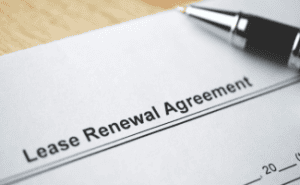How Property Managers Can Adapt to Changing Resident Expectations

The COVID-19 pandemic changed how property managers and renters alike defined home.
At some point, properties became more than just places to live. They became safe havens in great times of uncertainty. They became connectivity hubs: home offices for hybrid or remote work and the backdrop for countless Zoom or Facetime calls with family and friends.
As renters spend extraordinary amounts of time in their dwellings, property managers are working overtime to provide them with premium resident experiences, property upgrades, and amenities that align with their lifestyles. Let’s take a closer look at some of the industry trends property managers are following.
Affordably Meeting Residents’ Demands
With more of Americans’ paychecks going to rent—36 percent of their gross income to be exact–renters are looking to get more for what they’re paying, especially if they’re staying home more. Keyless entry, free Wi-Fi, and smart lockers that store their packages are hot on their list of digital amenities. Interior features like walk-in closets and soundproofed living environments that quiet everyday noise distractions are another must.
Amenities may be nice, but residents also want property managers to listen to them.
They expect prompt responses when they reach out with questions, concerns, or maintenance requests. According to a property management report, 55% of residents expect to hear back from a property manager within 2 hours of contacting them. Additionally, 22.8% of almost 65,971 online mentions about poor communication were related specifically to a lack of email response from property managers. One suggestion for property managers in order to mitigate this situation is to include an automated email response with an expected response time in order to manage communication efficiently.
Property managers should also not underestimate the power of using surveys and reviews to elicit/collect existing resident feedback.
They’ll also notice a different level of candidness in what residents are willing to say in surveys versus reviews versus social media. The same report reveals 88 percent of prospective residents read reviews before touring a property and 55 percent won’t even consider doing that if a property has less than four stars. Virtual tour mentions online have increased by 49 percent from last year with the sentiment increasing by 14.1 points.
Be Aware of the Competition
Aside from taking care of their residents, property managers also need to stay on top of their competition.
Well-funded start-ups are the new kids on the block, using fancy amenities at premium costs to attract new residents. Therefore, it’s in property managers’ best interest to closely monitor the competition by reading reviews and gathering competitive intelligence -investing in tools that mine external feedback on social media is critical to gaining an advantage in the current market. An increased use of automation including automated resident screening and onboarding, rent collection and maintenance requests allows property managers to stay above the rest in terms of competition.
Need a Lease Agreement?
Access 150+ state-specific legal landlord forms, including a lease.
Be Prepared for Rent Negotiations
Over the past two years, amenities have become a deal breaker for residents. So much so, that they use it as a bargaining chip when it comes to rent negotiations.
For example, choosing to not offer free Wi-Fi gives residents even more reason to live at a competing property instead. Property managers know residents have high expectations when it comes to amenities but are also struggling with controlling costs at a time when inflation is prevalent at every juncture of everyday life. This is especially true for Gen Z, who prefers working from home since the pandemic, and expects apartment rentals to offer amenities such as outdoor living and working spaces.
Renewed Emphasis on Renter’s Customer Journey
In today’s renter’s landscape, property managers are also stewards of the resident journey. According to Gartner, 11 percent of resolution is completely resolved by self-service. This means that residents need help resolving their problems, and rarely can customers navigate the entire journey on their own. The best communities are going to have both options, thus the need for property managers to provide residents with an omnichannel experience that prioritizes self-service over a multistep process to be connected to a live agent. Offering digital solutions allows an easier process for tenants to find, rent and manage properties.
Let’s not forget that listening to employees is also a critical part of providing renters with the best living experience possible. They’re responsible for maintaining the top two drivers of positive sentiment, customer service, and speed, and are property managers’ eyes and ears in identifying service issues that are negatively affecting resident sentiment.
After all, employee experience and customer experience are symbiotic. Data from each cohort directly impacts the other.
Providing Renters with the Best Experience Possible
By and large, renters’ demands will remain unchanged between 2022 and 2023. Property managers are still contending with setting affordable rent rates, lingering labor issues, and industry regulations from COVID-19, on top of finding new ways to drive more efficiencies without sacrificing performance.
What will ultimately be a measure of property managers’ success is how they strategically prioritize their efforts to improve the resident experience. At the end of the day, property managers and renters both want the same thing: to love where they live. Let’s make that happen in 2023.
Source: Rental Housing Journal















 Accessibility
Accessibility